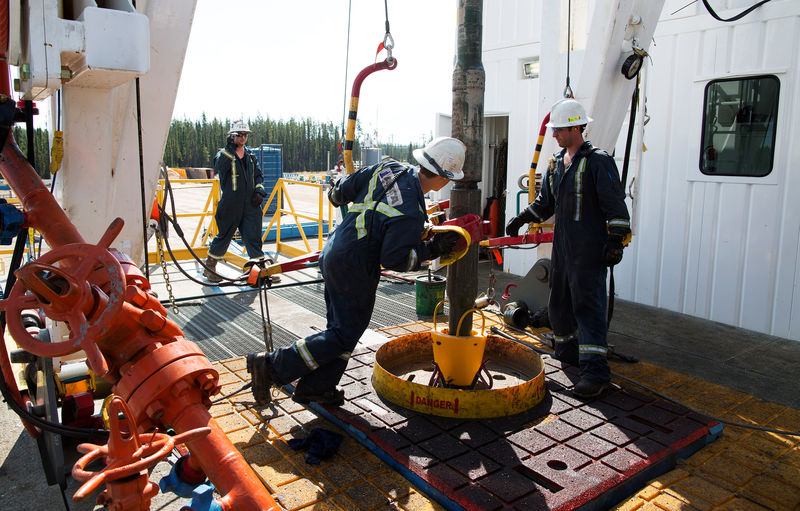By Nia Williams (NYSE:WMB)
CALGARY, Alberta, May 22 (Reuters) - Canada's main crude-producing province Alberta will table a bill to repeal the provincial carbon tax on Wednesday, the new government said in a speech kicking off its first legislative session.
Premier Jason Kenney's United Conservative Party swept to power in Alberta last month on a platform that promised to champion the province's beleaguered energy industry and stand up to the federal government in Ottawa.
Scrapping Alberta's carbon tax, which was introduced by the previous government, was a major part of Kenney's campaign. It will be the first piece of legislation tabled by the new government, but puts the province on a collision course with Prime Minister Justin Trudeau's Liberals.
The move will automatically trigger a federal carbon tax that is aimed at provinces that do not have their own plans to curb greenhouse gas emissions. carbon tax has been all economic pain and no environmental gain," Kenney told reporters at a news conference. "If Justin Trudeau's government then seeks to impose a federal carbon tax in Alberta, we will see him in court."
The Carbon Tax Repeal Act will provide C$1.4 billion in tax relief to Albertans, the government said in the Speech from the Throne delivered by the Lieutenant Governor of Alberta Lois Mitchell, which opens the legislative session in the provincial capital Edmonton.
Kenney's government also plans this spring to table legislation that gradually lowers Alberta's corporate tax rate from 12% to 8% and another bill cutting back on regulation.
Measures aimed specifically at increasing the competitiveness of the energy industry include guaranteeing the oil and gas royalty structure in place when a well is drilled remains in place for the life of the well.
Alberta is home to Canada's vast oil sands but has seen billions of dollars in foreign investment flee the province since 2017 in part because of concerns about market access and regulatory uncertainty.
Kenney's government also plans to continue opposing two federal bills that it claims will damage the energy industry. Bill C-48 proposed a moratorium on oil tankers on British Columbia's northern coast, while Bill C-69 would overhaul how major projects including oil pipelines and oil sands plants are assessed. its current form Bill C-69 "threatens Alberta's exclusive jurisdiction over non-renewable natural resources, and is damaging investor confidence," Mitchell said in the Throne Speech.
